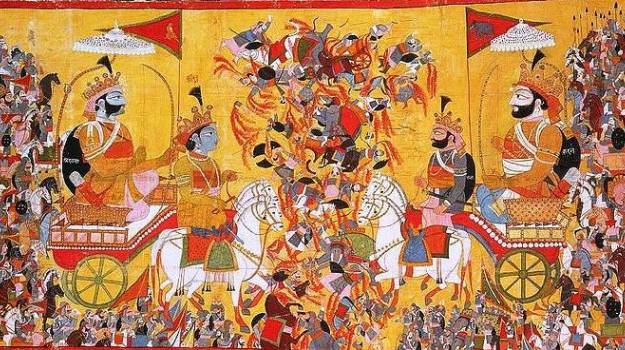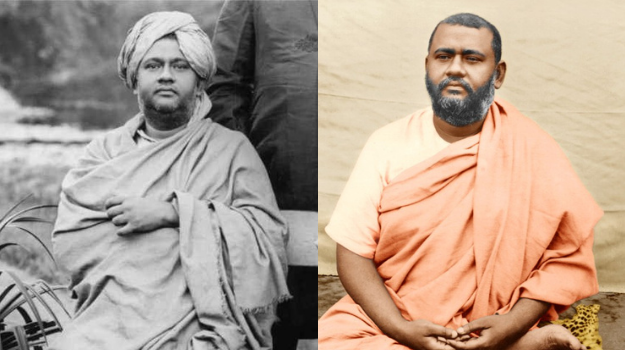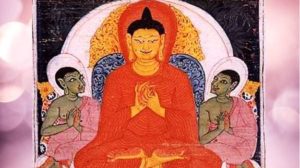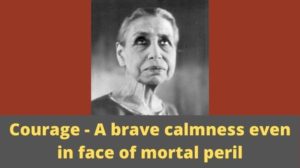Many times when we help others but don’t get so much as a thank you in return, we get terribly disappointed.
In our mind we start making sweeping generalizations – “This age is not one where you can do good to others. There is no gratitude left in people.”

– Swami Vivekananda
Thinking such things we withdraw our hand from further acts of kindness. Some people get so disillusioned that they become not just indifferent, but outright cruel.
But this attitude is terribly wrong as it immediately arrests our spiritual development.
As the great Vedantic text the Bhagavad Gita has explained, any act of kindness must be done without the slightest expectation for reward, recognition or gratitude in return. This is because when we act with the expectation of a reward in mind, we are only fueling our own sense of importance or ego – the one thing in spirituality, which we are trying to get rid of.
It is for this reason that the Gita lays the utmost stress on the ideal of “Nishkama Karma” or desireless actions – doing helpful acts freely and unconditionally, without the slightest expectation of gratitude or reward.
Only when work is done from this state of absolute desirelessness, can we succeed in annihilating our ego and evolve to a higher consciousness.
A most practical story highlighting this attitude of desirelessness when doing good deeds, has been told by Swami Brahmananda, a direct disciple of Sri Ramakrishna.
Swami Brahmananda was a God-realized teacher, who had attained to the highest Nirvikalpa Samadhi, just like his guru Sri Ramakrishna and brother-disciple Swami Vivekananda, had done.

– Swami Brahmananda
The Story of the Drowning Scorpion
Swami Brahmananda: “Sometimes a person whom you help will harm you. Ishwar Chandra Vidyasagar, a great philanthropist, helped many people in his life, but later those people criticized and harmed him.
At last he became disgusted. When he would hear from any of his friends that a certain person had criticized him, he would reply: “What? I did not give him any help!” (…and still he criticized me.)
That is the nature of a worldly person. But the nature of a holy person is different: He will continue to do good to people in spite of everything. The nature of an evil person is to do harm to others.
There was a holy man who used to practice meditation sitting on the bank of a river. One day he saw a scorpion being carried away by the current of the river. Out of compassion he grabbed hold of it and released it on the ground. As soon as he touched the scorpion it stung his hand, causing him terrible pain.
After a while the scorpion fell back into the water and was again about to be carried away by the current. Again the monk rescued it and was stung by the ungrateful creature. A third time the scorpion fell into the river, and seeing its pitiable condition, the compassionate monk started to rescue it.
At that moment a bystander said to the monk: “Sir, I have been watching you. I saw how that scorpion stung you several times. Still you are trying to save its life?”
The monk replied: “The nature of a scorpion is to sting, and the nature of a holy person is to do good to others, so I am following my nature. It is true the scorpion stung me, but that does not mean I must be cruel.”
Saying so, the monk picked up the scorpion once more and carried it to a distant place so that it could not again fall in the water.
The nature of a holy man is to do good to the world, and he never gives up this divine nature.”
Moral of Swami Brahmananda’s Story: We must help others because it is our very nature to assist, our automatic mental disposition and not because we expect gratitude, reward or recognition in return. Having even the slightest such expectation in mind, will only serve to fuel our ego, the main element in spirituality which we are trying to get rid of.
“Christ taught, “Love your enemies, bless them that curse you, do good to them that hate you, and pray for them which deceitfully use you and persecute you.”
And what an amount of strength and undauntedness, true non-violence requires! We should not be weak, we should not be cowards, but we should at the same time be kind.
The person who does not retaliate, however he is hurt, however he is offended by others, is a person of terrible strength, and he alone is a man. All others are miserable cowards, hiding their fear and abject cowardice under a cloak of braggardism, physical and mental, and never rising to the stature of a man.
– Swami Yatiswarananda, a direct disciple of Swami Brahmananda.
Note: The above teaching of Swami Brahmananda has been taken from the book: A Guide to Spiritual Life – Spiritual Teachings of Swami Brahmananda.








